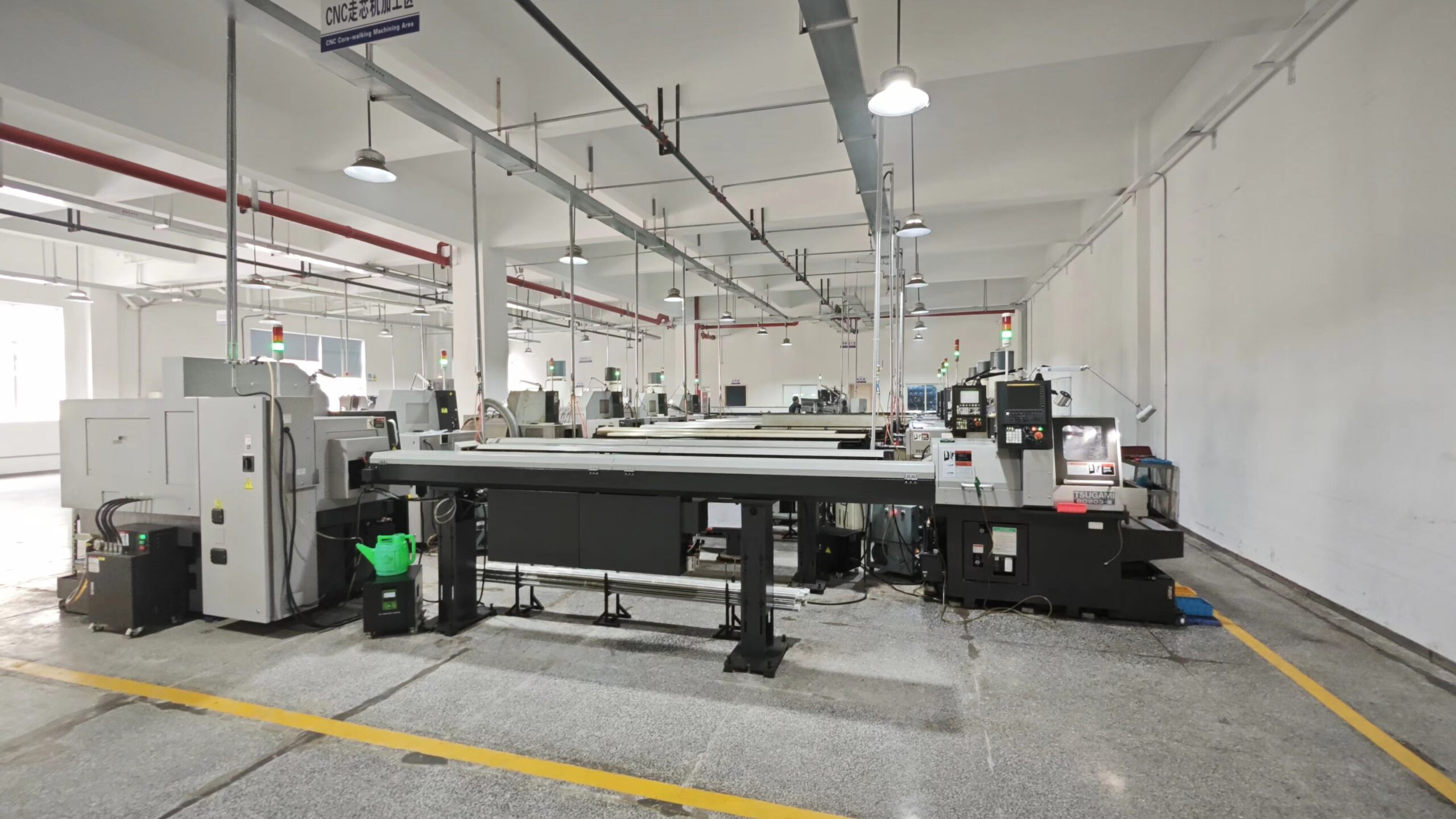
Choosing the right metal injection molding service plays a vital role in the success of your project. A poor choice can lead to costly delays, subpar quality, and budget overruns. You need a provider who understands your needs and delivers precision and reliability. Making an informed decision ensures smooth production and high-quality results. By carefully evaluating your options, you can avoid common pitfalls and set your project up for success.
Evaluate the Provider’s Experience and Expertise
When selecting a metal injection molding service, you must evaluate the provider’s experience and expertise. These factors directly impact the quality and efficiency of your project. A provider with a strong background in the industry and technical knowledge can deliver better results.
Assess Industry Experience
Industry experience is a critical factor to consider. Providers with years of experience understand the challenges and nuances of metal injection molding. They have likely worked on diverse projects, which equips them to handle complex requirements. Ask about their history in the field. Find out how long they have been offering metal injection molding services and the types of industries they have served.
Experienced providers often have a proven track record of delivering high-quality components. They know how to address potential issues before they escalate. This expertise ensures smoother production and fewer delays. You should also inquire about their past projects. Look for case studies or examples that demonstrate their ability to meet client expectations.
Review Technical Knowledge
Technical knowledge is equally important. A skilled provider understands the intricacies of the metal injection molding process. They can guide you through material selection, design optimization, and production techniques. Ask about their familiarity with different metals and alloys. Verify if they can work with the specific materials your project requires.
You should also assess their understanding of design principles. A knowledgeable provider can help refine your designs to improve manufacturability and reduce costs. They should be able to identify potential flaws in your design and suggest improvements. This level of expertise ensures that your final product meets both functional and aesthetic standards.
Additionally, check if the provider stays updated with advancements in technology. Providers who invest in modern equipment and techniques often deliver more precise and durable components. Their commitment to innovation reflects their dedication to quality and efficiency.
Assess Material and Design Capabilities
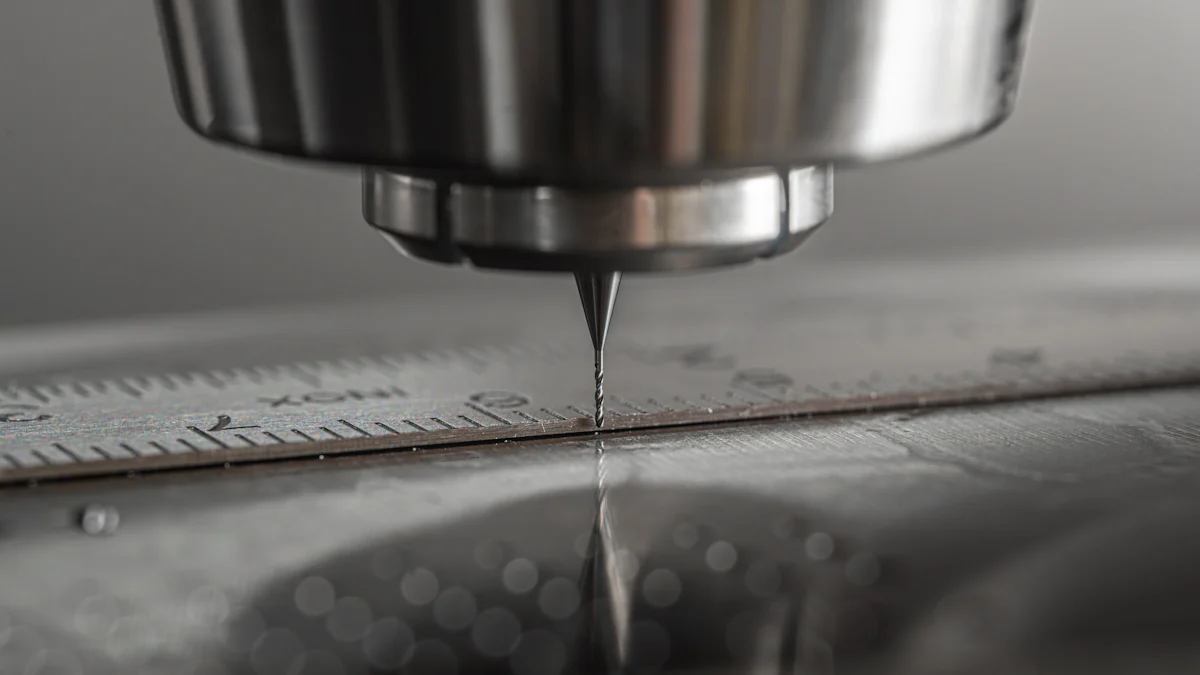
When selecting a metal injection molding service, you must assess the provider’s material and design capabilities. These factors determine whether the provider can meet your project’s specific requirements and deliver components that perform as intended.
Verify Material Options
The range of materials a provider offers is crucial. Different projects require different metals or alloys, and not all providers can handle every material. You should confirm that the provider works with the specific materials your project demands. For example, if your design requires stainless steel or titanium, ensure they have experience with these metals.
Ask about the quality of the materials they use. High-quality raw materials lead to durable and reliable components. Providers who source materials from reputable suppliers often produce better results. You should also inquire if they offer material testing or certification to verify the properties of the metals they use. This step ensures that the materials meet your performance and safety standards.
Additionally, consider whether the provider can handle custom material requirements. Some projects may need unique alloys or specialized material properties. A provider with flexible material options can adapt to these needs, giving you more control over the final product.
Evaluate Design Support
Design support plays a significant role in the success of your project. A provider with strong design capabilities can help you optimize your designs for manufacturability. This process reduces production challenges and minimizes costs. You should ask if the provider offers design consultation or engineering assistance.
Look for providers who use advanced design tools, such as CAD software or simulation technology. These tools allow them to analyze your designs and identify potential issues before production begins. Early detection of design flaws saves time and prevents costly errors.
You should also evaluate their ability to collaborate on design improvements. A skilled provider can suggest modifications to enhance the functionality or aesthetics of your components. They should work closely with you to ensure the final design aligns with your vision and project goals.
Finally, check if the provider offers prototyping services. Prototypes allow you to test and refine your designs before full-scale production. Providers who offer this service can help you validate your design and make necessary adjustments, ensuring a smoother production process.
Understand Production Capacity and Timelines
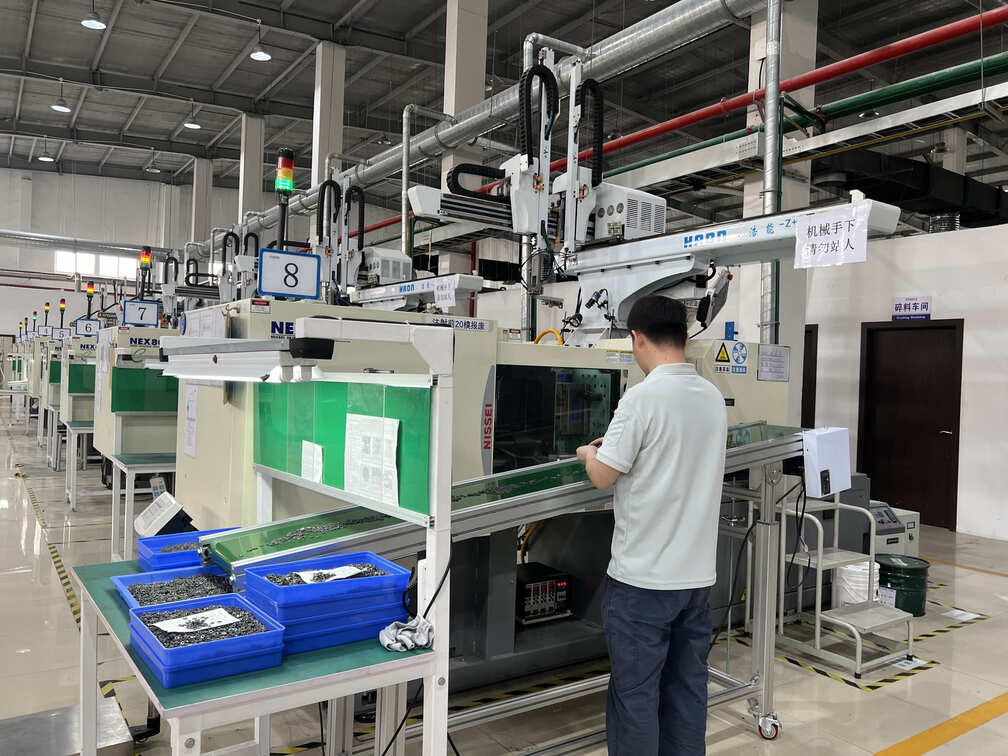
Understanding a provider’s production capacity and timelines is essential for ensuring your project runs smoothly. These factors determine whether the provider can meet your demands without compromising quality or causing delays.
Confirm Production Scalability
You need to confirm if the provider can scale production to match your project requirements. Some projects start with small quantities but may require higher volumes later. A reliable metal injection molding service should handle both low and high-volume production efficiently. Ask about their equipment and facilities. Providers with advanced machinery and flexible setups can adapt to changing production needs.
Inquire about their ability to manage complex or large-scale projects. Providers experienced in handling diverse production demands are better equipped to deliver consistent results. You should also discuss their approach to scaling production. A clear plan ensures they can maintain quality and meet deadlines as your needs grow.
Review Lead Times
Lead times play a critical role in project planning. Production delays can disrupt your schedule and increase costs. You should ask the provider about their typical lead times for projects similar to yours. Providers with streamlined processes often deliver faster without sacrificing quality.
Evaluate their ability to meet tight deadlines. Some projects require quick turnarounds, and not all providers can accommodate such demands. Discuss their workflow and identify potential bottlenecks. Providers who proactively address these issues are more likely to deliver on time.
You should also consider their communication practices. Providers who keep you updated on production progress help you plan better. Regular updates reduce uncertainty and allow you to address any issues promptly.
Review Quality Control Measures
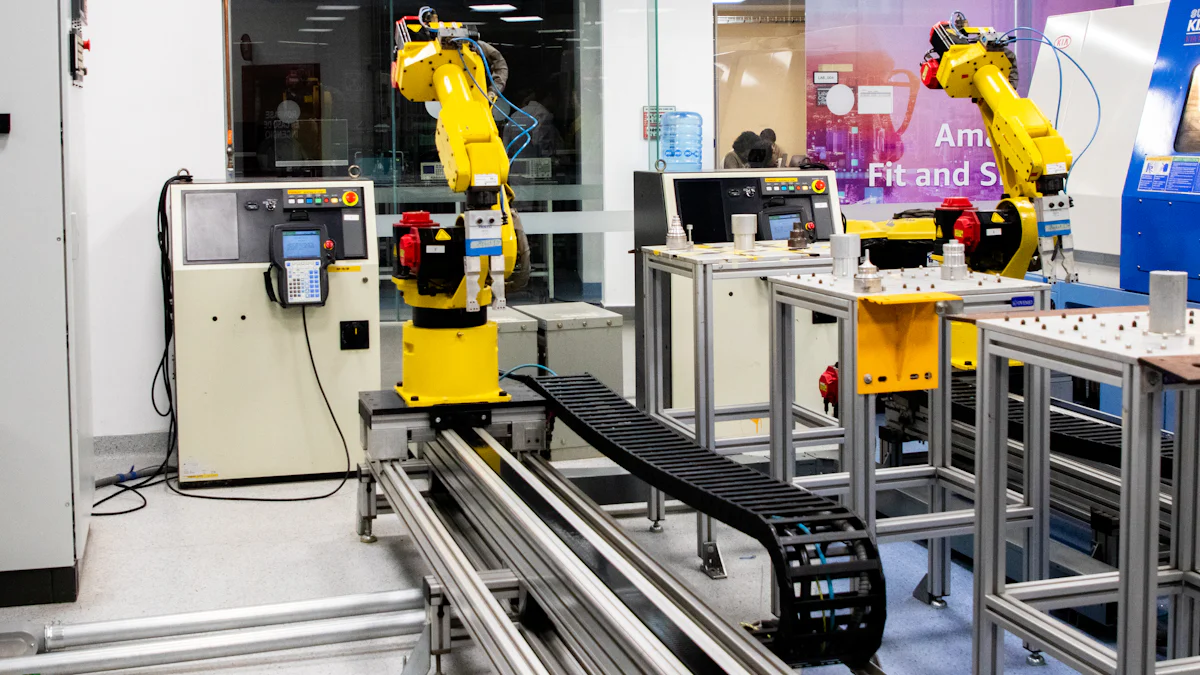
Ensuring robust quality control measures is essential when selecting a metal injection molding service. A provider with strong quality assurance practices and effective defect management can deliver reliable and consistent results. By thoroughly evaluating these aspects, you can minimize risks and ensure your project meets the highest standards.
Inspect Quality Assurance Processes
Quality assurance processes reflect a provider’s commitment to delivering superior components. You should start by asking about their inspection protocols. Reliable providers perform rigorous checks at every stage of production. This includes material verification, in-process inspections, and final product evaluations. These steps help identify and address issues early, reducing the likelihood of defects.
Request information about the tools and technologies they use for quality control. Advanced equipment, such as coordinate measuring machines (CMM) or optical inspection systems, ensures precise measurements and accurate results. Providers who invest in modern quality control tools demonstrate their dedication to maintaining high standards.
You should also inquire about their adherence to industry standards. Providers who follow recognized quality frameworks, such as ISO 9001, often have well-documented and efficient processes. These certifications indicate that the provider consistently meets customer and regulatory requirements. Verifying their compliance with these standards gives you confidence in their ability to deliver quality products.
Check for Defect Management
Defect management is another critical aspect of quality control. You need to understand how the provider handles defects during production. Ask about their defect detection methods. Providers who use automated systems or advanced testing techniques can identify flaws more effectively than those relying solely on manual inspections.
Inquire about their approach to resolving defects. A reliable provider should have a clear process for addressing issues, including root cause analysis and corrective actions. This ensures that similar problems do not occur in future production runs. You should also ask if they maintain detailed records of defects and resolutions. These records provide valuable insights into their commitment to continuous improvement.
Additionally, consider their communication practices regarding defects. Providers who promptly inform you about issues and propose solutions demonstrate transparency and reliability. This proactive approach helps you make informed decisions and maintain project timelines.
By thoroughly reviewing a provider’s quality assurance processes and defect management practices, you can ensure that your metal injection molding service delivers components that meet your expectations.
Consider Cost-Effectiveness
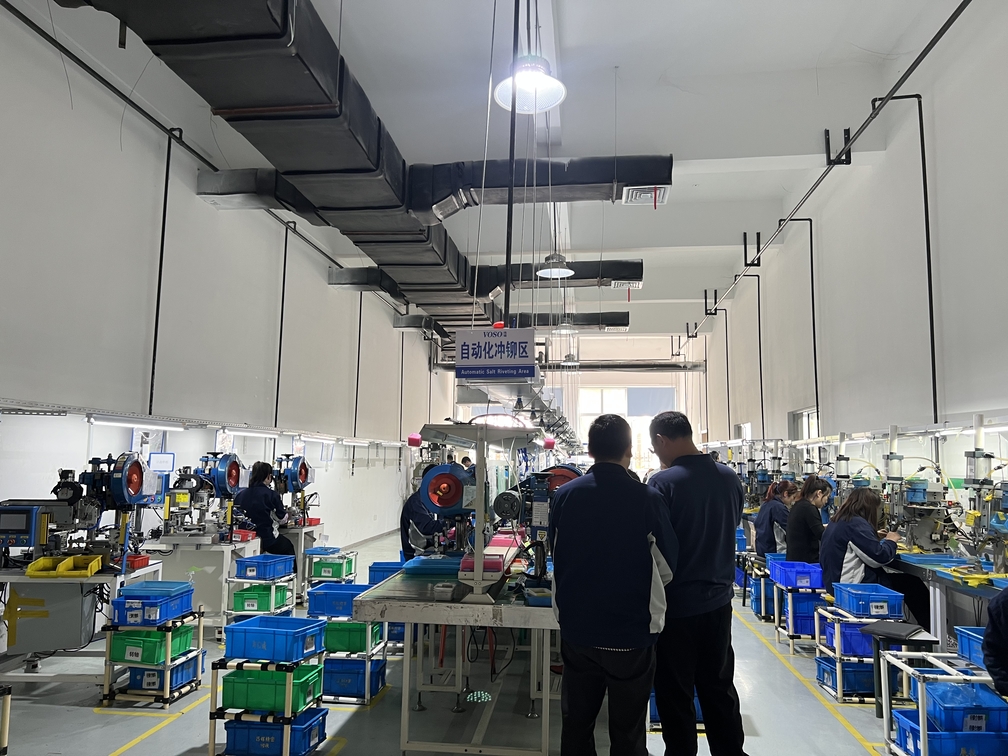
Cost-effectiveness plays a crucial role in selecting the right metal injection molding service.
Compare Pricing Models
Start by comparing the pricing models of different providers. Some providers may offer fixed pricing, while others might use variable pricing based on project complexity or volume. Request detailed quotes from each provider to understand their cost structure. Look for transparency in their pricing. Hidden fees or unclear charges can lead to unexpected expenses later.
Evaluate whether the provider offers tiered pricing for larger production volumes. Bulk orders often come with discounts, which can significantly reduce costs for high-volume projects. Ask if they provide flexible payment options or customized pricing plans tailored to your specific needs. This flexibility can help you manage your budget more effectively.
You should also consider the long-term financial implications. A provider with slightly higher upfront costs but better quality and efficiency may save you money in the long run. Poor-quality components or delays can lead to additional expenses, making the initial savings less valuable.
Balance Cost with Value
Balancing cost with value is essential when choosing a metal injection molding service. Low-cost providers may seem appealing, but they might not deliver the quality or support your project requires. Focus on the overall value the provider brings to your project.
Assess the quality of their materials and production processes. High-quality materials and advanced manufacturing techniques often result in more durable and precise components. These factors contribute to the long-term success of your project, making them worth the investment.
Also, consider the range of services the provider offers.
You should also evaluate their customer service and communication practices. A provider who prioritizes clear and timely communication adds value by ensuring smooth collaboration. Reliable support throughout the project minimizes disruptions and enhances your overall experience.
By comparing pricing models and balancing cost with value, you can select a provider that aligns with your budget and delivers exceptional results. This approach ensures that your investment in a metal injection molding service contributes to the success of your project.
Check for Certifications and Compliance
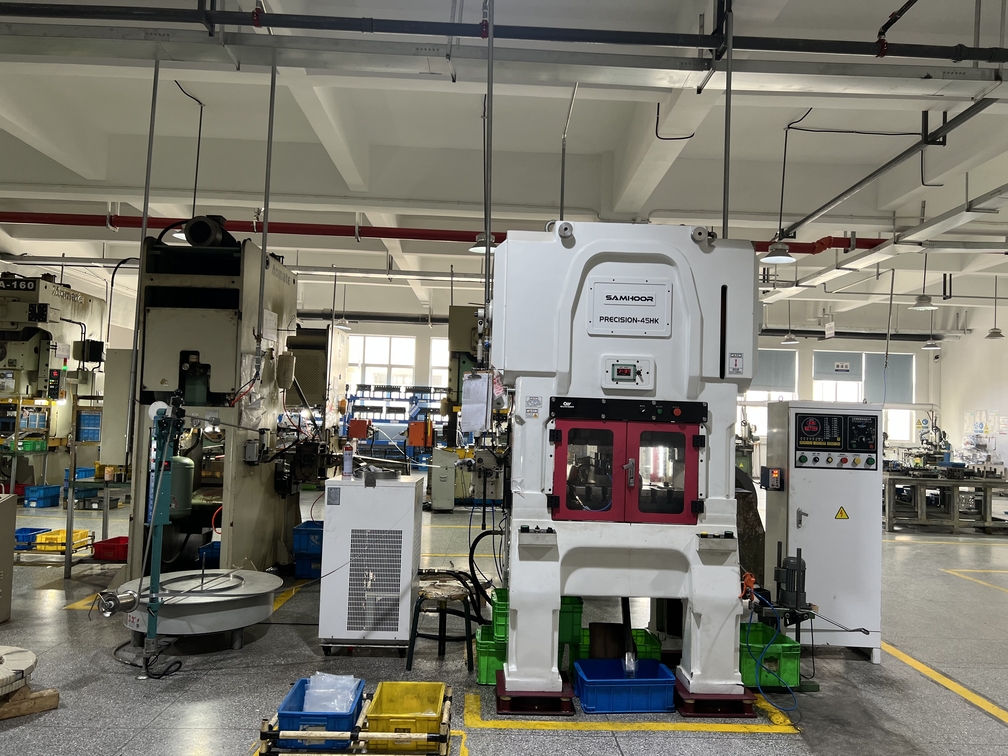
Certifications and compliance standards serve as a testament to a provider’s commitment to quality, safety, and industry best practices. When selecting a metal injection molding service, you must evaluate these aspects to ensure the provider meets your project’s requirements and adheres to recognized standards.
Verify Industry Certifications
Industry certifications demonstrate a provider’s ability to maintain consistent quality and follow established processes. You should ask the provider about their certifications and verify their validity. Look for certifications such as ISO 9001, which indicates that the provider follows a structured quality management system. This certification ensures that their processes are designed to meet customer expectations and regulatory requirements.
In addition to ISO 9001, inquire about any certifications specific to metal injection molding or the industries they serve. For example, if your project involves medical components, check if the provider holds certifications like ISO 13485, which focuses on medical device manufacturing standards. These certifications confirm that the provider has the expertise and systems to handle specialized projects.
You should also evaluate whether the provider undergoes regular audits to maintain its certifications. Frequent audits ensure that the provider’s processes remain compliant with industry standards. Providers who prioritize certification renewal demonstrate their dedication to continuous improvement and reliability.
Confirm Environmental and Safety Standards
Environmental and safety standards play a crucial role in responsible manufacturing. You need to confirm that the provider complies with environmental protection and workplace safety regulations. Ask about their adherence to standards such as ISO 14001, which focuses on environmental management systems. This certification indicates that the provider takes steps to minimize their environmental impact.
Inquire about their waste management practices and material sourcing policies. Providers who use sustainable materials and follow eco-friendly practices contribute to reducing environmental harm. This approach aligns with modern sustainability goals and reflects positively on your project.
Workplace safety is equally important. You should ask the provider about their compliance with safety regulations, such as OSHA standards in the United States. A safe working environment reduces the risk of accidents and ensures smooth production. Providers who prioritize safety often have well-trained staff and robust safety protocols.
You can select a provider that aligns with your values and project needs by verifying certifications and confirming compliance with environmental and safety standards. This step ensures that your metal injection molding service delivers reliable results while maintaining ethical and responsible practices.
Analyze Customer Reviews and Testimonials
Customer reviews and testimonials provide valuable insights into a provider’s reliability and performance. They help you gauge the experiences of others who have worked with the metal injection molding service. By analyzing this feedback, you can make a more informed decision.
Read Online Reviews
Online reviews offer a wealth of information about a provider’s strengths and weaknesses. Start by exploring reviews on trusted platforms, such as industry-specific forums or business directories. Look for patterns in the feedback. Consistently positive reviews often indicate a provider’s ability to meet customer expectations. On the other hand, recurring complaints may signal potential issues.
Pay attention to details in the reviews. Customers often share specific experiences, such as how the provider handled challenges or met tight deadlines. These anecdotes give you a clearer picture of what to expect. Focus on reviews that mention projects similar to yours. They provide the most relevant insights into the provider’s capabilities.
Be cautious of overly generic or excessively positive reviews. These might not reflect genuine customer experiences. Instead, prioritize reviews that offer balanced perspectives, highlighting both strengths and areas for improvement. This approach ensures you get an accurate understanding of the provider’s performance.
Request References
Requesting references allows you to directly connect with past clients of the provider. This step gives you an opportunity to ask detailed questions about their experiences. When speaking with references, inquire about the quality of the components, adherence to timelines, and overall communication during the project.
Ask about any challenges they faced and how the provider addressed them. A reliable metal injection molding service should demonstrate problem-solving skills and a commitment to customer satisfaction. References can also share insights into the provider’s flexibility and ability to adapt to changing project requirements.
Verify whether the provider maintained transparency throughout the process. Clear and honest communication is a strong indicator of professionalism. Additionally, ask if the client would work with the provider again. A positive response reinforces the provider’s credibility and reliability.
By combining insights from online reviews and direct references, you can build a comprehensive understanding of the provider’s reputation. This evaluation helps you select a partner who aligns with your project needs and expectations.
Selecting the right metal injection molding service provider is crucial for your project’s success. By following these seven tips, you can make informed decisions that lead to reliable partnerships. Evaluating providers thoroughly ensures you avoid delays, quality issues, and unnecessary costs. A dependable provider enhances your project’s efficiency, quality, and overall value. Take the time to assess their expertise, capabilities, and reputation. Your careful selection will pave the way for a smooth production process and exceptional results.
FAQ
What is metal injection molding (MIM)?
Metal injection molding (MIM) is a manufacturing process that combines the precision of plastic injection molding with the strength of metal. It involves mixing powdered metal with a binder material to create a feedstock, which is then injected into a mold. After molding, the binder is removed, and the part is sintered to achieve its final density and strength.
How do I know if MIM is suitable for my project?
MIM works best for producing small, complex parts with high precision. If your project requires intricate designs, tight tolerances, or high-strength components, MIM could be an ideal solution. You should also consider the production volume. MIM is cost-effective for medium to high-volume production runs.
What materials can be used in metal injection molding?
MIM supports a wide range of materials, including stainless steel, titanium, nickel alloys, and tool steels. Each material offers unique properties, such as corrosion resistance, strength, or thermal conductivity. You should consult with your provider to determine the best material for your specific application.
How does MIM compare to traditional manufacturing methods?
MIM offers several advantages over traditional methods like machining or casting. It allows for greater design flexibility, produces less material waste, and achieves higher precision. Additionally, MIM can produce complex geometries that are difficult or impossible to achieve with other methods.
What industries commonly use metal injection molding?
Many industries rely on MIM for their manufacturing needs. These include medical, automotive, aerospace, electronics, and consumer goods. The process is particularly popular for creating small, high-performance components like surgical instruments, automotive sensors, and electronic connectors.
How long does the MIM process take?
The timeline for MIM depends on factors like part complexity, production volume, and the provider’s capacity. Generally, the process includes several stages: feedstock preparation, molding, debinding, and sintering. You should discuss timelines with your provider to ensure they align with your project deadlines.
What quality control measures should I expect from a MIM provider?
A reliable MIM provider should implement rigorous quality control measures. These include material testing, in-process inspections, and final product evaluations. Advanced tools like coordinate measuring machines (CMM) or optical inspection systems ensure precise and consistent results.
Can MIM handle high-volume production?
Yes, MIM is well-suited for high-volume production. The process allows for efficient scaling while maintaining consistent quality. Providers with advanced equipment and flexible setups can adapt to large-scale production demands without compromising precision.
What are the cost factors involved in MIM?
The cost of MIM depends on factors like material selection, part complexity, and production volume. While the initial tooling costs may be higher, the process becomes more cost-effective for medium to high-volume production. You should request detailed quotes to understand the cost structure and avoid hidden fees.
How do I choose the right MIM provider?
To select the best MIM provider, evaluate their experience, material capabilities, production capacity, and quality control measures. Check for certifications, read customer reviews, and request references. A thorough assessment ensures you partner with a provider who meets your project requirements and delivers reliable results.
